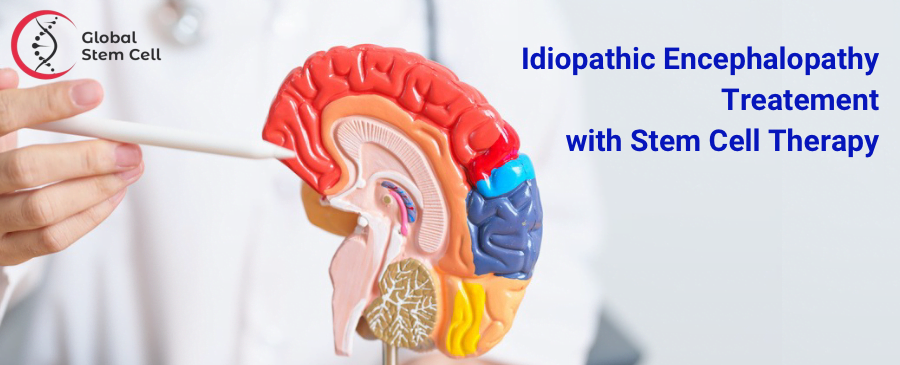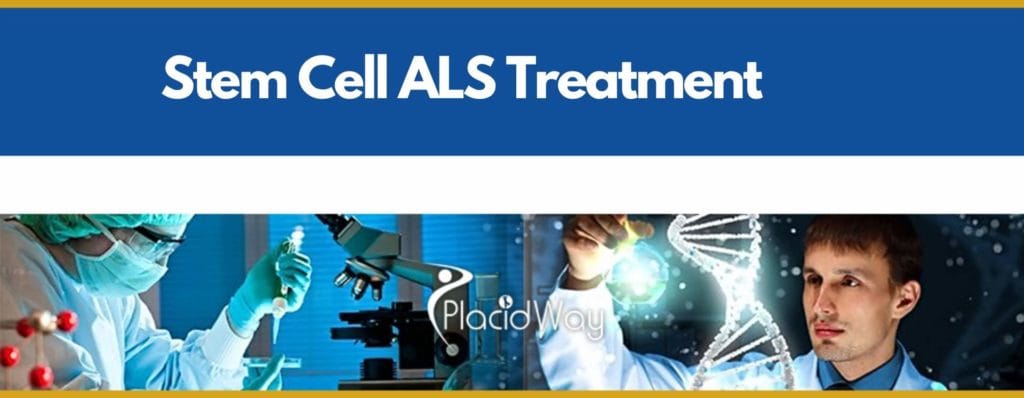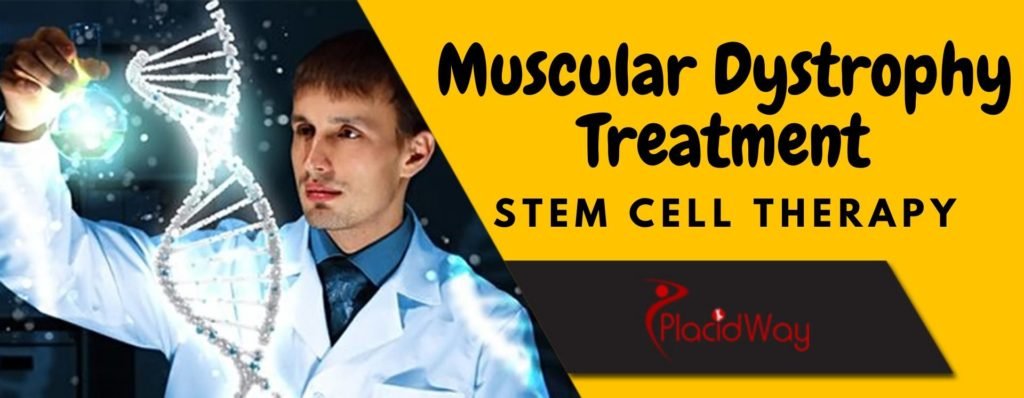Idiopathic Encephalopathy Treatment with Stem Cell Therapy
The condition which leads to brain damage, disease or malfunction is generally termed as Encephalopathy. Idiopathic Encephalopathy is a critical condition that may lead to an altered mental state. There could be various factors that may lead to this condition such as drugs, toxins, metabolic problems, infections, trauma, etc.
The condition can present a wide range of symptoms, which could be mild or severe. These symptoms may lead to subtle change in personality or memory loss to severe conditions such as coma, seizures, dementia or death.
What are The Causes of Idiopathic Encephalopathy?
- Infectious (Parasites, bacteria, viruses)
- Alcohol toxicity
- Alterations in pressure within the brain (often from bleeding, tumors, or abscesses)
- Lack of oxygen to the brain
- Liver cancer or liver failure
- Kidney failure
- Brain tumors
- Metabolic diseases
- Exposure to many types of toxic chemicals like ammonia, lead or mercury
- Poor nutrition
Treatment of Idiopathic Encephalopathy
Anyone who has a head or brain injury needs immediate medical attention. The key factor is the extent and location of the damage. Brain injury does not necessarily result in long-term disability or impairment, but the correct diagnosis and treatment is needed to contain or minimize the damage.
The extent and effect of brain damage are determined by a neurological exam, neuroimaging testing such as MRI or CT scans, and neuropsychological assessments. Doctors will stabilize the patient to prevent further injury, ensure blood and oxygen are flowing properly to the brain, and ensure that blood pressure is controlled.
Almost all patients will benefit from rehabilitation to assist in long-term recovery. That may include:
- Physical therapy
- Occupational therapy
- Speech and language therapy
- Psychological support
- Stem Cell therapy for brain injury
Stem Cell Treatment of Idiopathic Encephalopathy
Stem cell treatment for Idiopathic Encephalopathy may focus on secondary brain injury, which is the result of biochemical and physiological events, ultimately leading to neuronal cell death. Recent research has indicated that the potential therapeutic benefit of stem cell therapy could be the result of the following mechanisms:
- Secrete growth factors to promote functional outcome after brain injury via neurogenesis and synaptogenesis;
- Produce and induce many cytokines and trophic factors to enhance angiogenesis and vascular stabilization in the lesion boundary zone.
- Decrease glial scar formation and promote glial-axonal remodeling;
- Differentiate into cells of neural origin including neurons, astrocytes, and glial cells.
- Stem cells, therefore, act in a pleiotropic way to stimulate brain remodeling after brain injury by influencing several neural restorative functions such as synaptogenesis, angiogenesis, and neurogenesis.
Ideal Candidates for Idiopathic Encephalopathy Treatment
Idiopathic encephalopathy is a complex condition, and determining the ideal candidate for stem cell therapy requires careful consideration. Here’s a breakdown of factors that might make someone a good fit for this approach:
Medical Suitability:
- Diagnosed with Idiopathic Encephalopathy: This is crucial, as stem cell therapy is not a treatment for all brain inflammation causes.
- Moderate to Severe Symptoms: Individuals experiencing significant impairments in daily life due to seizures,weakness, cognitive decline, or movement problems might benefit more from exploring this option.
- Limited Response to Traditional Treatments: If standard medications or therapies haven’t provided adequate symptom control, stem cell therapy might be considered as a potential next step.
- Relatively Good Overall Health: Stem cell therapy can be demanding on the body, so good overall health is essential for undergoing the procedure.
Age Considerations:
- Adults and Older Children: While research on stem cell therapy for Idiopathic Encephalopathy is ongoing, most studies have focused on adults and older children. The safety and effectiveness in younger children requires further investigation.
Realistic Expectations:
- Understanding the Experimental Nature: Stem cell therapy for Idiopathic Encephalopathy is still under investigation. Patients should be aware of the limited long-term data and the possibility that it might not be a definitive cure.
- Willingness to Participate in Follow-Up: Close monitoring and follow-up are crucial after stem cell therapy. Ideal candidates should be willing to participate in long-term evaluations to track treatment effects and potential side effects.
How Stem Cells Might Help Idiopathic Encephalopathy
1. Reducing Inflammation:
Idiopathic encephalopathy involves inflammation in the brain. Stem cells have natural anti-inflammatory properties.They can secrete molecules that signal the immune system to calm down and stop attacking healthy brain tissue.This can help reduce swelling and damage caused by the inflammation.
2. Promoting New Brain Cell Growth:
Some types of stem cells have the ability to differentiate, meaning they can transform into specialized cells. In the context of encephalopathy, the hope is that stem cells can be coaxed into becoming new brain cells, like neurons or oligodendrocytes (cells that make the fatty insulating sheath around nerves). These new cells could potentially replace damaged or lost ones, improving brain function.
3. Improving Function of Existing Brain Cells:
Even if they don’t directly become new brain cells, stem cells can release growth factors and other supportive molecules. These molecules can help existing brain cells function better, promoting repair and regeneration.Additionally, stem cells might stimulate the creation of new blood vessels in the brain, which improves blood flow and oxygen delivery to brain cells.
Frequently Asked Questions About Idiopathic Encephalopathy
Idiopathic encephalopathy is a challenging condition, and exploring treatment options like stem cell therapy is understandable. Here are some frequently asked questions to help you navigate this path:
What are the different types of stem cells used for treatment?
There are two main types of stem cells explored:
- Mesenchymal Stem Cells (MSCs): These come from adult bone marrow, fat tissue, or umbilical cord blood.They are believed to support healing and reduce inflammation.
- Hematopoietic Stem Cells (HSCs): These come from bone marrow and can develop into various blood cell types.Their role in brain repair is still being studied.
How Can Stem Cell Therapy Help with Idiopathic Encephalopathy?
Stem cell therapy uses stem cells, which have the potential to develop into various cell types. The theory is that these stem cells can migrate to the damaged areas of the brain and promote healing or regeneration. Studies are ongoing to determine the effectiveness of this approach for idiopathic encephalopathy.
What are the Benefits and Risks of Stem Cell Therapy for Idiopathic Encephalopathy?
Potential Benefits:
- May improve symptoms like seizures, weakness, or cognitive decline.
- May promote brain repair and regeneration.
Potential Risks:
- Stem cell therapy is a relatively new treatment, and long-term effects are unknown.
- There is a possibility of side effects, such as infection or tumor formation.
- The treatment can be expensive and may not be covered by insurance.
Is Stem Cell Therapy for Idiopathic Encephalopathy Approved?
Stem cell therapy for idiopathic encephalopathy is still considered an experimental treatment. It is not yet approved by regulatory bodies like the FDA in the US.
Where Can I Find More Information and Treatment Options?
It is crucial to consult with a qualified neurologist familiar with idiopathic encephalopathy and stem cell therapy options.They can discuss the potential benefits and risks in detail, considering your specific situation. Clinical trials are also ongoing, and you may be eligible to participate in one.
For more details about Idiopathic Encephalopathy Treatment with stem cell therapy, click below:







